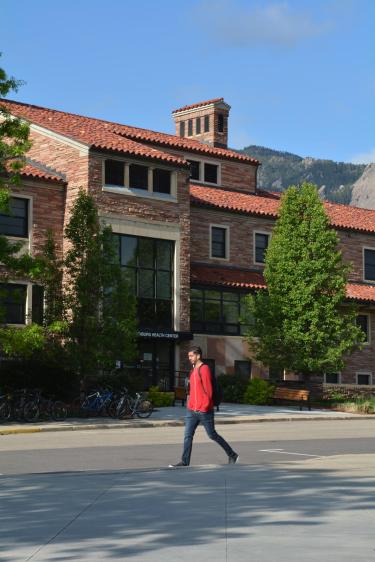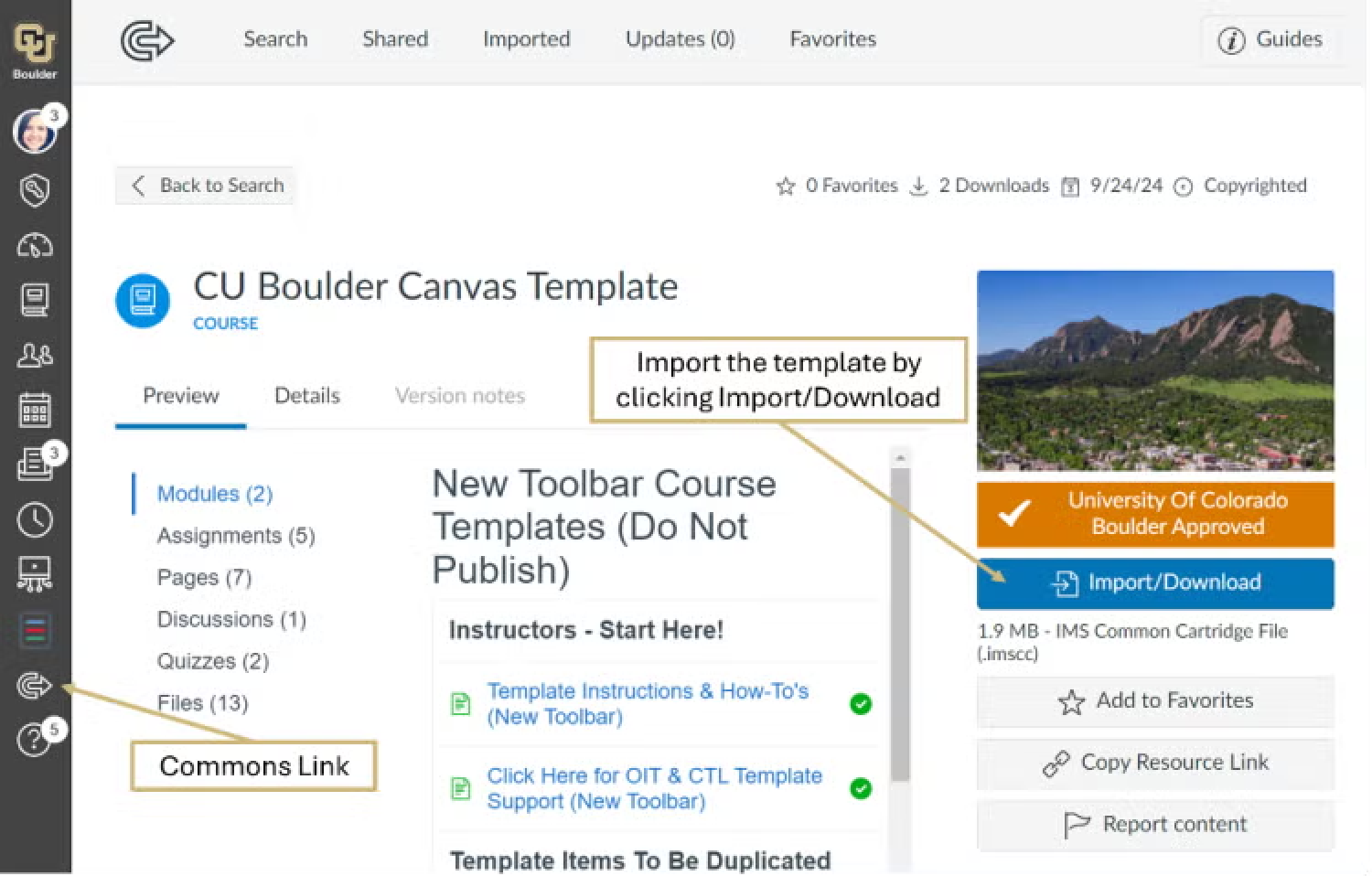Canvas Template to Promote Student Success

We are excited to make this Canvas course shell template available to all CU educators. The template reflects extensive faculty input, as well as promising practices in teaching and learning, digital accessibility, and design. We hope this template and the supporting resources will help CU educators build more consistent, effective Canvas courses to support student success.
Please direct questions to the Canvas Templates Core Team: Karen Crouch, Instructional Design and Technology Consultant, CTL; Kelly Gildersleeve, Assistant Director, CTL; Jacob Henry, Academic Technology Professional, OIT; Amanda McAndrew, CTL Assistant Director - Teaching, Learning, and Technology; and Tina Ryder, Graduate Assistant, OIT
The BUS Canvas Templates Initiative Faculty Working Group
As part of the Buff Undergraduate Success (BUS) initiative, a working group of nine faculty members joined the Center for Teaching & Learning, Arts & Sciences Support of Education Through Technology, Office of Information Technology, Digital Accessibility Office, and Continuing Education to share effective practices in instructional design and designing course templates, develop a list of essential features to be included in a Canvas course template, identify resources and support needed for implementation of the template; and iteratively provide feedback on a template prototype developed by the core BUS Canvas Templates team. This culminated in the development of a Canvas course template, which has since undergone additional refinements in response to digital accessibility testing and user experience research. The Canvas template was made available to all CU educators in October 2024 for use in their spring 2025 classes.
- Sarah M. Barkin, Teaching Assistant Professor, Program for Writing & Rhetoric
- Daniel Bolton, Associate Teaching Professor, Physics
- Christopher Carbone, Teaching Assistant Professor, Leeds School of Business
- Christy Fillman, Teaching Professor of Distinction, Molecular, Cellular & Developmental Biology
- Susan Marie Hendrickson, Teaching Professor, Chemistry
- Caitlin Kelly, Assistant Teaching Professor, Ecology and Evolutionary Biology
- Joseph Labrecque, Assistant Teaching Professor, College of Media, Communication and Information
- Supriya Naidu, Assistant Teaching Professor, Computer Science
- Toma Serban Peiu, Lecturer, College of Media, Communication and Information
Dear Colleagues,
As members of the Canvas Templates Faculty Working Group, we are excited to share updates from our work throughout the Spring 2024 semester. Our working group was part of the Canvas Templates Initiative, a collaboration between the Center for Teaching & Learning (CTL), Arts & Sciences Support of Education Through Technology (ASSETT), Office of Information Technology (OIT), Digital Accessibility Office (DAO), and Continuing Education (CE). This project is also part of the BUS (Buff Undergraduate Success) Initiative, which broadly aims to support the success of all CU undergraduate students.
Throughout Spring 2024, our working group met regularly to provide feedback on a Canvas template that will be made available to all CU educators mid-fall semester 2024 for use in their spring 2025 courses. The Canvas template will reduce the amount of time and effort CU educators put into building out Canvas course shells, while providing a more unified experience for students who simultaneously navigate multiple courses (e.g., through reducing the challenges of locating course information, assignments, and syllabi). The template was designed primarily for main campus, in-person courses and models best practices in teaching and learning, digital accessibility, and usability. However, it is also customizable to suit course-specific needs. The use of this template is entirely optional. If you elect not to use the template, we hope it may still inspire innovation within your existing Canvas courses!
Importantly, the fall 2024 release of the Canvas template will be paired with resources and support for educators who wish to implement the template in their courses. Instructions built into the template include links to Canvas video tutorials and other resources. In addition, the CTL and OIT will provide workshops and are available to provide trainings to units on how to effectively implement the template in one's own courses.
In sum, we hope the new Canvas template will support and inspire the important work of CU’s community of educators, while likewise contributing to the success of all of our students.
If you have any questions or feedback to share, please contact the CTL@colorado.edu.
Access and Explore the New Canvas Template
Instructions for accessing the template:
- Navigate to Canvas (Canvas.colorado.edu), and log in using your CU credentials.
- Select Commons from the Global Navigation Toolbar on the far left.
- Search for “CU Boulder Canvas Template to Promote Student Success,” and select the course with that name.
- Import the template by pressing the blue Import/Download button on the right.
- Using the checkboxes next to each course, select the course(s) into which you would like to import the Canvas Template.
- Scroll to the bottom of your course list, and click the blue "Import into Course" button.
For additional instructions, see the Canvas Commons How To Import a Resource Guide.

Resources for Implementation
To assist you in implementing these templates in your courses, please reach out to the support offices below:
- Academic Technology Consulting & Canvas Trainings
- Canvas Video Tutorials
- Pedagogical & Course Design Consultations from the CTL & ASSETT
- Digital Accessibility Tutorials & Resources
We believe that these Canvas templates will significantly enhance the educational experience for both faculty and students at CU. Together, we can create a more effective and engaging learning environment.

